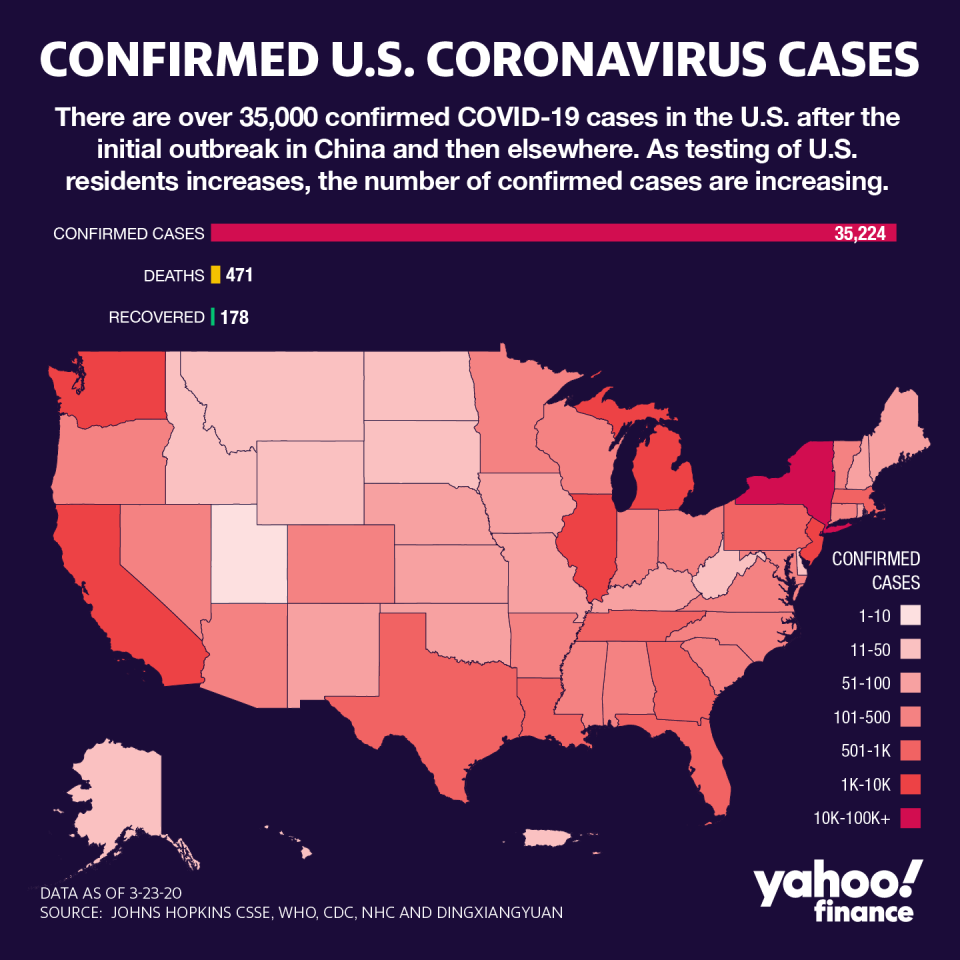Unemployment claims are going through the roof: Connecticut governor
The global economy continues to take a beating as the coronavirus pandemic sweeps through business productivity and supply chains alike. American small businesses are among the hardest hit after many were forced to close their doors to help enforce community social distancing campaigns and the affects could be devastating. Analysts expect to see record-setting unemployment data over the next few weeks, as government officials do what they can to soften the blow to local economies.
“[Small business] revenues have just disappeared, and they still have their fixed costs. So we wanted to do everything we could either to mitigate their fixed costs, or give them enough powder, give them enough cash so they could power through for at least the next four to six months,” said Connecticut Gov. Ned Lamont in an interview with Yahoo Finance.
“The economy is dropping off a cliff, especially when it comes to those small businesses, those Main Street merchants,” Lamont said.
[Read: Connecticut Gov. calls on Trump to impose nationwide shelter-in-place order]
Economists will be watching the rollout of key data for any clues into the health of the labor market and overall economy. Looking ahead, the outlook is bleak: Goldman Sachs is forecasting average annual GDP growth to fall to -3.8%. Meanwhile, Bank of America expects the number of initial jobless claims to reach 3 million “in the week ending March 21st, reflecting the mass layoffs/furloughs across the country due to the COVID-19 outbreak.”

“The [unemployment claims] are going through the roof,” Lamont said. “The computer system has reached its threshold a couple of times right now. Like a lot of things in the state government, it's an old system that was scheduled for an upgrade in a year. We need it right now.”
Indeed, more than 30,000 unemployment benefit claims were filed last week in Connecticut; the typical number is 3,000 to 3,500 a week.
President Trump signed into law last week the Families First Coronavirus Response Act, a bill that requires smaller employers (those with fewer than 500 employees) to provide paid sick and medical leave to workers affected by the COVID-19 outbreak. Although some argue the bill places an unfair burden on small businesses, Lamont says it’s important to lend relief to people who have fallen ill.
“Paid sick leave is really important, because you want to make sure that if anybody's not feeling quite right, stay home,” said Lamont. “That hourly employee, living paycheck to paycheck, paid sick leave, we're going to take care of you. Stay home.”
Nick Rose is a producer for Yahoo Finance.
Read more:
Here’s how the coronavirus divides us
How companies are stepping up to ease coronavirus hardships
Dr. Oz says America made 'strategic errors' on testing for the coronavirus
What is a recession? Here are the basics
Read the latest financial and business news from Yahoo Finance
Follow Yahoo Finance on Twitter, Facebook, Instagram, Flipboard, SmartNews, LinkedIn, YouTube, and reddit.